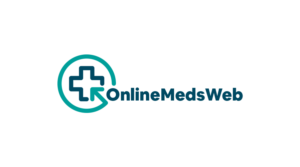Nurses are at the frontlines of global health initiatives. When there is a major health issue, they are the ones that help inform, prevent, and treat the disease. Healthcare disparities exist all over the globe. Over the coming decades, nurses will find they must play a role in erasing these disparities and helping people of all ages get access to good preventative care.
events-trips | insuremycomb | fastsquaring | biddyvocals | LooKeelInks | linuxpatent | riocapitals
Addressing health care disparities globally
Access to healthcare and a good understanding of health issues is not the same for everyone. Globally and domestically factors such as race, age, disability, income level, gender, and more play a role in the level of care and access to care that an individual or their family receives.
Nurses play a role in pointing out these disparities and why they might be occurring but also strategizing ways to improve access to care with the ultimate goal of eradicating disparities entirely. Nurses may be asked to serve on boards, strategize and plan with local leaders and healthcare administrators, or may spend time working with non-profit agencies and public health departments.
Global health initiatives
When there is a health concern that impacts people all over the globe, it is important that nurses work to improve education regarding the condition and strategize methods for prevention and treatment. In a world where international travel is common, it is critical that measures are taken quickly to reduce the global spread of communicable diseases.
In modern times, the COVID-19 pandemic has been the health issue that had the most global impact due to how fast it spread to each country, with even isolated areas eventually getting cases. Nurses and healthcare leaders helped prevent the spread and protect vulnerable groups of people across the globe by suggesting measures such as the use of masks, hand washing, and social distancing during times of high infection probability.
Collaboration is important when addressing global health
Healthcare leaders and professionals all over the world must be open to collaboration to improve global health and reduce the incidence of outbreaks.
You see this level of collaboration and sharing knowledge more often than you might expect. For example, when a country has cases of Ebola, they typically make this public information and make sure it is available to healthcare leaders globally. While Ebola is highly contagious, quick responses to an outbreak and good containment have helped ensure that it has never spread worldwide.
Public health campaigns help stress prevention and empower the public
Educating the public about important healthcare issues is crucial. Campaigns targeted at specific demographics within a population can help ensure that these groups do not have their healthcare needs ignored. For example, a campaign that helps those under 25 know their birth control options and knowledge about STD prevention, symptoms, and treatment can prevent outbreaks of STDs and unwanted pregnancies. Giving people knowledge helps them take charge of their health and realize that they do have options no matter who they might be.
Disaster response
When there is a disaster, there is often a greater need for medical services and knowledgeable healthcare professionals. Sometimes this can mean that medical personnel from other areas travel to the scene of a disaster to provide temporary assistance.
Healthcare access in remote or rural areas must be improved
No matter what country you are in, the areas that are more remote or rural tend to have far less access to healthcare, especially the specialized services necessary to treat major injuries and illnesses.
Improving access in remote areas is difficult to achieve. Traveling health clinics and even surgeons are one of the ways specialized care is brought to these locations. Of course, this is not perfect. When specialized care is only available a few times per year, health issues can go untreated for longer periods of time resulting in higher health care costs and poorer long-term outcomes.
Shortage of nurses and other health workers
The United States is known for its shortage of medical workers due to a large population of aging adults, more medical workers retiring, and the fact that more people have access to health insurance, so they are using medical services more often. Unfortunately for the rest of the world, there are shortages virtually everywhere else as well, although the reasons for this may vary.
If you are considering making a career change or you are a recent graduate thinking about what career to start out with then you should consider nursing. If you are an experienced RN who wants to advance your career and possibly take on a leadership role, then you might want to consider an advanced degree. Baylor University offers an online DNP in Executive Nursing Leadership program (DNP–ENL) that can be completed online while you maintain your current job. The only exception is that you will be expected to complete a doctoral project but that can be done locally, and Baylor will work with you to ensure that this is feasible for a working professional to do. In six semesters you will learn the skills you need to take on a leadership role at any medical facility or clinic. This is a great program for those who want to split their time between clinical hours, teaching, research, or working in administration.
Nurses play a vital role in global health
Nurses play a major role in global health by providing education, collaboration, and medical services throughout pandemics and outbreaks. They help communities by educating people about common health issues and showing them how they can prevent problems and lead healthier and happier lives.

